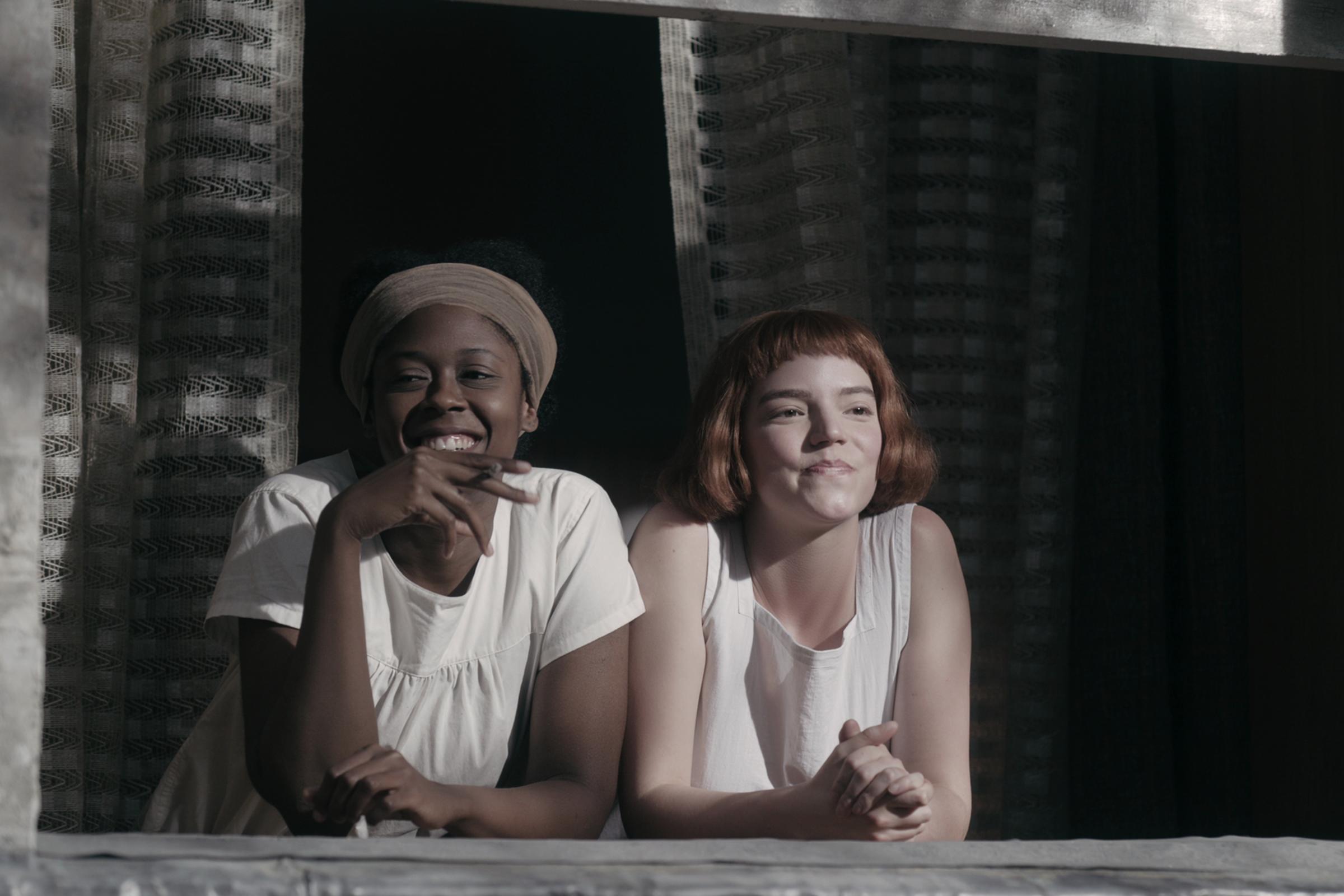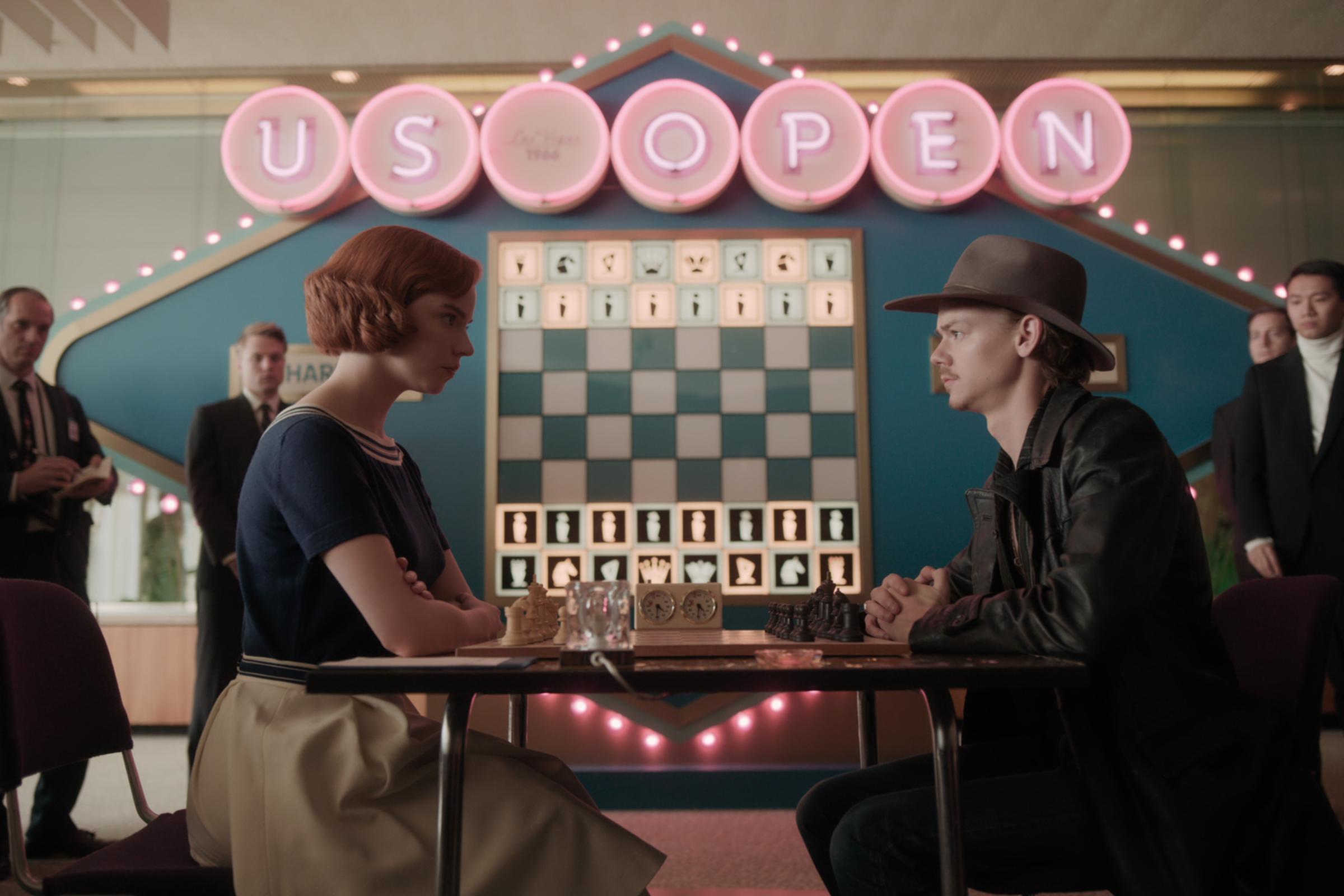Are TV dramas OK? I ask because, sometime during the past decade, a format once rooted in the daily struggles of more-or-less normal human beings came a bit unglued. So-called prestige drama got darker, stranger, flashier, pulpier, scarier or simply more intense. Forced by a surplus of original content to find a gimmick, many TV creators have turned away from realistic stories, to embrace fantasy, sci-fi, superheroes, melodrama. Maybe the tipping point was Game of Thrones. Maybe it was American Horror Story or The Walking Dead or even Downton Abbey’s metamorphosis from stodgy period piece to self-aware soap. Now, pay TV platforms such as HBO and Amazon are loading up on genre fare—some but not all of it great. Emotional dramas like Six Feet Under and Friday Night Lights have given way to the mawkish This Is Us. Procedurals are getting weird; The Good Wife team begat Evil. And the most authentic, vividly wrought characters of the last several years have mostly come from half-hour dramedies: Fleabag, Atlanta, Enlightened, BoJack Horseman, Better Things, Insecure, Catastrophe, Vida.
At this point, any hour-long drama that forsakes intellectual property, narrative histrionics and expensive special effects in favor of psychological realism represents a welcome change of pace. And one as excellent as The Queen’s Gambit feels very rare indeed. An adaptation of the novel by Walter Tevis (The Hustler, The Man Who Fell to Earth) that comes to Netflix on Oct. 23, the absorbing seven-part miniseries is first and foremost a character study. Its hero, orphaned chess prodigy Beth Harmon, may not be the typical mid-20th-century girl. But hers is essentially a coming-of-age story—one that asks what awaits a brilliant, precocious loner in adulthood. The show’s suspense comes less from the question of whether she’ll grow up to become the world champion than from the question of whether she’ll grow up to be reasonably stable and happy.
Played as a child by Isla Johnston and later, in a transcendent performance, by Anya Taylor-Joy, Beth arrives at a Kentucky orphanage after surviving a car crash that kills her mother. It’s the late 1950s, and instead of getting the opportunity to talk through the precariousness of growing up without a family, wards of the state have their trauma managed by two-toned green tranquilizer capsules. Jolene (sharp newcomer Moses Ingram), a kind, resilient older girl who has been repeatedly passed over for adoption—probably because she’s Black—becomes a surrogate big sister to the taciturn, self-possessed Beth. Her advice: save those fun green pills for bedtime.

Sent to clap out erasers in the basement by a math teacher with nothing left to teach her, Beth meets the closest person she’ll ever have to a father figure: Mr. Shaibel (the wonderful Bill Camp), a grumpy janitor who spends idle moments gaming out chess moves. She’s obsessed with the game before she even knows what it’s called. High on meds she’s taken to hoarding, she envisions chessboards on the shadowy ceiling of her dormitory and loses hours playing through imaginary matches. It doesn’t take long for her to start beating Shaibel, then the head of his chess club and the star of the local high school team. By the time a couple in suburban Lexington adopts her, after four or five years at the orphanage, Beth knows chess is her destiny.
But she’s painfully out of place in her new home—a worst-case-scenario implementation of the Dorothy Draper aesthetic, all heavy curtains and plush carpeting and floral wallpaper in shades of fuchsia and turquoise. Like the doll she receives as a gift while at the orphanage and deposits directly into the trash, her pink bedroom assumes an affinity for the trappings of traditional femininity that she never developed. At school, teenybopper girls in identical sweaters and circle skirts make fun of her stiff pinafores and short, blunt, institutional bob. (The Anna Wintour look doesn’t quite work on a teenager.) But with her adoptive father always away, supposedly on business, and her new mom (played with astonishing sensitivity by Can You Ever Forgive Me? director Marielle Heller) perennially beer-drunk at home, 15-year-old Beth finds her way back to chess.
By episode three, the sports arc has kicked in, as Beth rises from local curiosity—a teen girl who handily defeats men more than twice her age—to international star. Though they eventually started to feel a bit repetitive to this novice, the chess matches are mostly exciting and, as far as I could tell, realistic. (Russian chess eminence Garry Kasparov consulted on the show.) German production designer Uli Hanisch, of Babylon Berlin, imports that series’ glamour and scrupulous historical detail to create immersive renderings of Paris, Moscow and Mexico City in the ’60s. In his Pop Art Las Vegas, a stack of huge, glittery dice are the centerpiece of the glassy hotel lobby, with smaller versions carved into the wooden room dividers.
Yet it’s Beth and her relationships that remain the focal point. A lesser adaptation might reduce her to an antihero of Don Draper or Olivia Pope proportions—a genius at work but selfish, manipulative, destructive and sometimes plain nasty in her personal life. Instead, writer-director Scott Frank (Godless) uses Beth’s interactions to draw out this strange girl’s unacknowledged longing to connect. In Heller’s Alma, a pianist who chose marriage over career, she finds an unlikely kindred spirit: a woman who seeks excitement, and who too often finds it at the bottom of a cocktail glass or a pill bottle. Their partnership could easily be depicted as mutually exploitative, with the underaged Beth taking advantage of Alma’s restlessness to keep entering tournaments and Alma using Beth for prize money and an excuse to leave her ugly living room. Though it starts out that way, what develops later is a surprisingly tender familial bond.

Meanwhile, chess brings men into Beth’s life. Hotshot players Beltik (Harry Melling, a Harry Potter alum most recently seen in The Old Guard) and then Benny (Thomas Brodie-Sangster of Godless and the Maze Runner movies), a pipsqueak whose bohemian leatherwear reads as a doth-protest-too-much rejection of the chess nerd stereotype, fall under a spell she’s unaware of casting. Just as you feel a familiar dynamic forming, in which a talented woman ends up intimidating her suitors, The Queen’s Gambit swerves; it’s probably no coincidence that a story about chess thrives on confounding audience expectations. For her part, Beth carries a torch for a man (Jacob Fortune-Lloyd) she trounces in her first-ever tournament.
For actors as well as writers, it’s hard to portray a character like Beth without falling prey to what is sometimes called the “not like other girls” trope—in this case, the implication that it’s her divergence from gender norms that make this blunt, confident, poker-faced young woman extraordinary. Frank avoids this trap by giving her a love of fashion (costume designer Gabriele Binder uses exquisite period costumes to capture an increasingly sophisticated character whose self-image never stops evolving) and by centering her heartfelt friendships with other women.
Taylor-Joy is the final, most crucial piece in the Beth Harmon puzzle. A 24-year-old who broke out in 2015’s terrifying The Witch when she was still in her teens, the actor has since genre-hopped from horror to black comedy (Thoroughbreds) to Jane Austen (the most recent Emma adaptation) in a series of stunning performances. It isn’t so much an alternate take on the ingénue that she brings to each of these roles, although she has a rare, arresting beauty. What radiates from her unfeasibly large, ultra-alert eyes is an intensity that verges on otherworldly. If she’s not like other girls, it’s because she might be the remarkably expressive prototype for a new and improved model of human. That, more than anything, is Beth. “Her deep passion for chess is the passion that I have for my art,” Taylor-Joy has said. “It felt easy to transfer the emotion.” Watching one of the year’s most fascinating TV characters ascend to the mid-century chess firmament, you believe her.
More Must-Reads from TIME
- Caitlin Clark Is TIME's 2024 Athlete of the Year
- Where Trump 2.0 Will Differ From 1.0
- Is Intermittent Fasting Good or Bad for You?
- The 100 Must-Read Books of 2024
- Column: If Optimism Feels Ridiculous Now, Try Hope
- The Future of Climate Action Is Trade Policy
- FX’s Say Nothing Is the Must-Watch Political Thriller of 2024
- Merle Bombardieri Is Helping People Make the Baby Decision
Contact us at letters@time.com